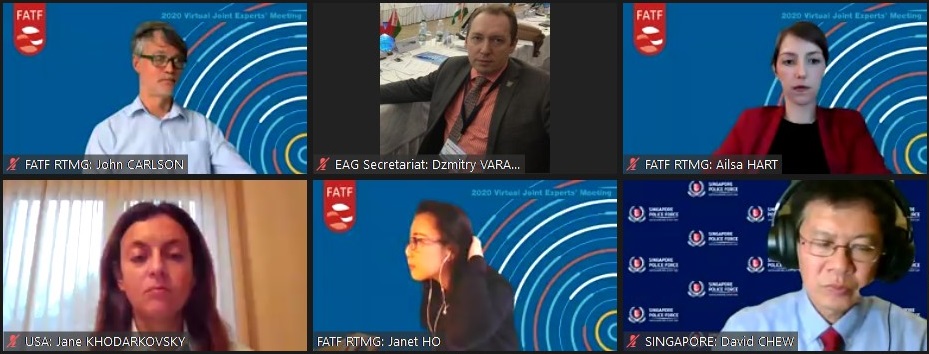-

03 December, 2020
The meeting brought together nearly 400 experts from different government institutions and private sector from across the world as well as the representatives of the international organizations, such as the United Nations Organization, International Monetary Fund, World Bank and Interpol.
The joint experts’ meeting is the international forum that provides the opportunity to discuss the issues related to countering money laundering in certain areas of public activities and combating the financing of terrorism and to received information from different jurisdiction about good practices of law enforcement, supervisory and regulatory authorities as well as about AML/CFT measures undertaken by the private sector and the civil society.
In his opening address, the FATF President Marcus Pleyer pointed out that, in this unprecedented time, it is more critical than ever for the AML/CFT experts to be fully aware of the changing risks and to enhance the international cooperation.
This year, in view of the spread the coronavirus infection and the restrictive measures imposed by individual countries in this regard, the joint experts’ meeting was held in virtual format via videoconferencing. In the course of the four-day meeting, the participants discussed the priority projects under the German Presidency of the FAF in 2020-2022.
The following topics of the FATF ongoing typology projects were tabled for discussion:
- Emerging and existing money laundering and terrorist financing risks;
- Financing of ethnically and radically motivated terrorism;
- Illicit arms trafficking and terrorist financing;
- Environmental crime and money laundering;
- Strengthening AML/CFT through digital transformation;
- Experience of multi-jurisdictional investigations and international cooperation.
At the introductory session, the EAG Secretariat representatives described the emerging and existing money laundering and terrorist financing risks and presented to the participants the interim results of the regional ML/TF risk assessment conducted in the EAG member countries located in the Central Asia and in the Russian Federation. The EAG Secretariat also shared the experience of development of the regional risk assessment methodology, information gathering methods and the regional risk rating techniques. The meeting participants were separately informed about the dynamics of terrorist financing risks in the EAG countries and the forecasted scenarios of potential future developments in this area in the context of the ongoing impact of the COVID-19 pandemic.
The meeting was also attended by the representatives of the private sector and civil society, whose knowledge helps to better understand the problems and challenges faced by them and to subsequently develop appropriate instruments and mechanisms that will be the most efficient in combating money laundering and terrorist financing.
The outcomes of the joint experts’ meeting will lay the foundation for the FATF ongoing work that will be further discussed during the Plenary Week in February 2012.
EAG Secretariat

 Login to your account
Login to your account Eng
Eng Рус
Рус